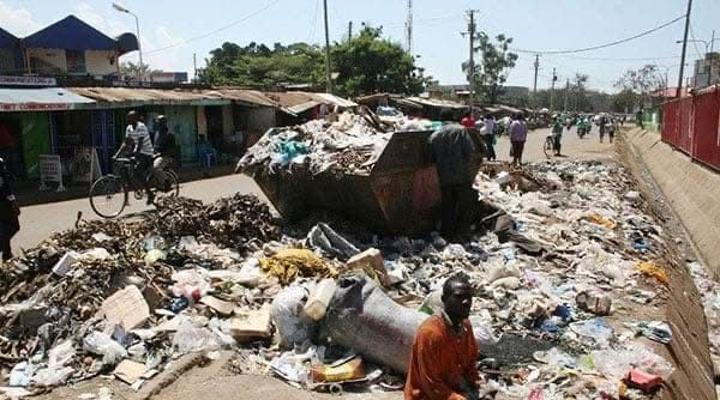Africa-Press – South-Sudan. Plastic is everywhere — in the streets, clogging drains, floating in the Nile, and now, many fear, in food and water.
As South Sudan marks World Environment Day under the theme “Beat Plastic Pollution,” the scale of the country’s plastic waste crisis has become impossible to ignore.
World Environment Day is celebrated annually on 5 June and encourages awareness and action for the protection of the environment.
In the crowded Juba suburb of Gudele 2, Moses Ayome says plastic pollution is devastating his community.
“Plastic bags and bottles block waterways. When it rains, water floods our homes,” he told Radio Tamazuj. “They also become breeding sites for mosquitoes. We are constantly battling malaria.”
Ayome describes dirty water spraying from discarded bottles as he walks through his neighborhood.
“It’s humiliating and dangerous,” he said. “I’ve never seen garbage trucks here. The government only cleans the main roads.”
Nearby, in Nyokuron West, Woja Emmanuel blames poor waste management in low-income areas.
“Trash piles up for weeks, rots in the sun, then washes into the river,” he said. “People drink from the Nile, but it’s full of our garbage. It’s killing us slowly.”
A Public Health Crisis
Juba struggles to manage waste from its growing population, but plastic pollution has reached a tipping point.
Dennis Logonyi, a resident of Hai Thoura, lives near a stream that overflows with plastic during rains.
“After flooding, vendors collect bottles from garbage to resell juice and water,” he said. “It’s a health disaster. People drink from trash.”
He criticizes the government for failing to regulate plastic imports.
“Companies keep bringing in plastic because they’re taxed but unchecked. We want a plastic-free city — right now, calling Juba a city is embarrassing.”
Environmental Toll
Environmentalist Garang Maguet Garang warns plastic pollution is a silent crisis.
“In Juba, it’s destroying livelihoods and ecosystems,” he said. “Most plastic ends up in the Nile, harming aquatic life. People consume microplastics through food and water.”
Over 90% of Juba residents rely on untreated Nile water, Garang said.
“Most don’t filter it, so they drink plastic waste. Microplastics enter digestive and respiratory systems. We are poisoning ourselves.”
A Step Forward — But Is It Enough?
Last year, South Sudan’s Environment Ministry introduced a deposit-refund policy: one U.S. cent per returned plastic bottle.
“Plastic pollution is alarming,” said Joseph African Batel, the Undersecretary of the National Ministry of Environment. “We estimate over a trillion bottles litter rivers, streets and farmland.”
The policy covers all plastic-packaged drinks, aiming to boost recycling without burdening consumers. The ministry partnered with recycling firm Plascom to collect bottles, with plans to expand nationwide.
But the Association of South Sudan Manufacturers warned the fee could hurt businesses. Batel responded: “If one cent breaks your business, maybe you’re in the wrong business.”
More Work Ahead
Residents and activists say the measure isn’t enough.
“We need garbage collection in neighborhoods, not just main roads,” Ayome said.
Logonyi urged stricter regulations: “Tax plastic producers. Arrest litterers. Educate the public. Change must come from all sides.”
South Sudan lacks infrastructure to manage plastic waste. Streets and markets are overwhelmed. Children play near trash piles. Some burn plastic, releasing toxic fumes.
Global Push for a Plastic Treaty
In two months, nations will negotiate a U.N. treaty to end plastic pollution.
U.N. Secretary-General António Guterres, in a World Environment Day statement, called plastic pollution a planet-wide crisis harming ecosystems, health and climate.
This year’s theme emphasizes solutions, including reusability, waste management reforms and reducing single-use plastics. The U.N. urged an ambitious treaty covering plastic’s full lifecycle, aligned with sustainable development goals.
Guterres called for decisive action: “Together, let’s end plastic pollution and build a better future.”
For More News And Analysis About South-Sudan Follow Africa-Press






